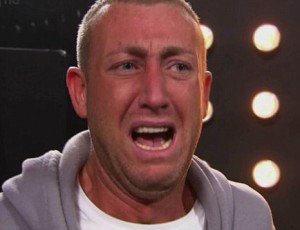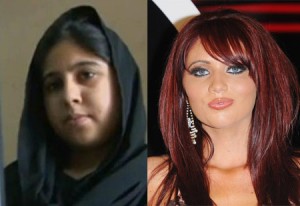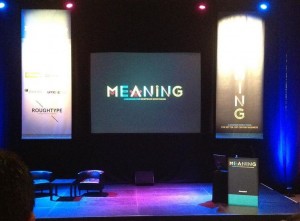 The X Factor reached crisis point this weekend, when one of the hot favourites, Ella Henderson, was booted out after no-one voted for her.
The X Factor reached crisis point this weekend, when one of the hot favourites, Ella Henderson, was booted out after no-one voted for her.
According to the Daily Mail both the X Factor judges and Twitter went into meltdown, because she was nailed on right from the beginning as the one to beat.
In contrast, Christopher Maloney – the act who didn’t originally make Gary’s final 3, but was brought back from the cold in a public vote – has been pulling in the votes, despite being dismissed as cheesy and ‘not relevant’ by the judges.
In fact, there seems to be a concerted campaign to stop Christopher winning this year. Louis Walsh even admitted as such in a Guardian interview at the weekend, saying they’ve “got to find a way to stop Christopher Maloney from winning X Factor”.
So why is “Mr Shake and Fake” – as the other contestants call Christopher Maloney – such a threat?
Not a trained monkey
The bottom line is that Christopher Maloney is a wildcard – in more senses than one.
You see, the majority of contestants who reach the final stages of X Factor are anything but ‘amateur pop hopefuls’. They’ve nearly all got managers before they audition, according to finalist Kye Sones.
In an interview given to The Standard after leaving the show in early November, he revealed that practically every artist has management.
It seems that Christopher Maloney doesn’t fall into that category. He’s not as malleable.
The Brookstein effect
Simon Cowell is nervous, because he can see Steve Brookstein all over again. The winner of the first ever series of X Factor in 2004 briefly flickered before ending up on the trash-heap of failed former contestants.
And, although there’s no guarantee that winning X Factor can guarantee you a long-lasting pop career (see Shayne Ward, Joe McElderry and Matt Cardle for proof), it’s much easier if Simon Cowell has something to work with.
From his eyrie in LA, he would have looked at the likes of Jahmene and Ella and seen dollar signs = in much the same way he did with Leona Lewis.
Christopher Maloney – on the other hand – is popular enough while the show is on, but his appeal outside the confines of the Fountain Studios on a Saturday night is limited.
What about Britain’s Got Talent success?
There are many who will be citing the likes of Susan Boyle or Paul Potts for proof that you don’t have to be young and attractive to make it big, but they’re forgetting that both of them had a strong USP and were discovered not on a singing show, but a ‘talent’ show.
Potts was the insurance salesman with the operatic voice that blew everyone else away.
Boyle was the frumpy, slightly dotty Scotswoman who ‘sang like an angel’.
Maloney? His USP is that he’s a cheesy, camp, Scouse, mummy’s boy. And you can probably find them in any number of holiday camps, wearing a red coat.
Don’t panic yet, Simon
The chances are, Christopher will implode before the end, and Jahmene will walk off with the crown. However, if he does win, it will be interesting to see how much they invest in his career, following the obligatory Xmas single.
Keep watching this space…


